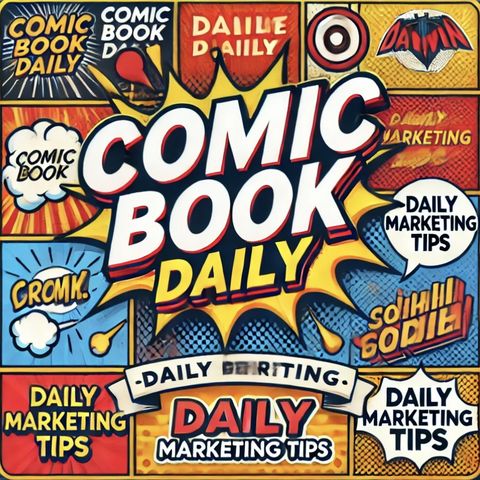Unleashing the Power of Comic Book Storytelling: Shaping Media and Entertainment

Download and listen anywhere
Download your favorite episodes and enjoy them, wherever you are! Sign up or log in now to access offline listening.
Unleashing the Power of Comic Book Storytelling: Shaping Media and Entertainment
This is an automatically generated transcript. Please note that complete accuracy is not guaranteed.
Description
The use of comic books as a storytelling medium continues to be a significant and influential part of popular culture, impacting not only literature but also influencing movies and television...
show moreStarting with the Star Wars universe, the character of Darth Maul, who first appeared in "Star Wars: Episode I – The Phantom Menace," has been a fan favorite due to his menacing presence and complex backstory. However, with no apparent sequel in the works for "Solo: A Star Wars Story," where Maul made a surprising cameo, fans speculated about the potential for further exploration of his character in other formats such as a TV series. The ambiguity surrounding his future in the Star Wars franchise highlights comic books as a medium where his story might continue to evolve. Comic books have become a sanctuary for extending narratives and exploring characters' untold stories beyond what is feasible in films and series.
In another domain, the intersection of comic book adaptations and mainstream cinema has seen varying opinions, notably reflected in prominent director Martin Scorsese’s critique. Scorsese pointed out issues with the current landscape of comic book movies, suggesting that their ubiquity might overshadow other forms of cinematic expression. This critique echoes broader industry discussions on the balance between blockbuster comic book movies and other genres within film.
Additionally, director Zack Snyder, known for his work on several comic book adaptations including "Watchmen" and "Justice League," continues to demonstrate the influence of comic book culture in other areas of his career. Snyder's plan for an action movie set within the LAPD, to be developed for Netflix, indicates how elements typical to comic book storytelling—such as clear-cut heroes and villains and visually driven narratives—can transcend into different types of media productions.
Furthermore, ongoing comic book series like DC Comics’ "Batman/Superman: World's Finest" show the enduring popularity and appeal of traditional superhero stories. The continual releases and previews of comic book issues, such as the mentioned "Batman/Superman: World's Finest #33," serve as a continual engagement point for fans who prefer the detailed and episodic storytelling unique to this medium.
It's clear that comic books are not just an entry point for blockbuster films but are a critical part of the cultural conversation around media and entertainment. They offer unique storytelling opportunities that can guide and enhance narratives across various platforms, strengthening connections with audiences and fostering a sustained interest in their expansive worlds and characters.
Information
| Author | QP-4 |
| Organization | William Corbin |
| Website | - |
| Tags |
Copyright 2024 - Spreaker Inc. an iHeartMedia Company
